How to choose an electric boiler for heating a private house?

Stationary stoves and wood heating boilers are not so relevant today. An exception can only be made from distant wilderness, where all the benefits of civilization can not get. The installation of an electric boiler for heating makes it possible not only to efficiently heat the room, but also to save money. However, this can only be achieved with the right choice of equipment. Therefore, we will consider how to choose an electric boiler for heating a private house.
to contents ↑Benefits
Heating rooms using electrical equipment has a number of advantages compared to other types of units for heating:
- Reasonable price of equipment.
- Safe operation (with proper installation and handling), since there are no combustion products.
- Ecological cleanliness. No need for additional ventilation.
- Fire safety.
- Simplicity of operation. It is even possible to fully automate the workflow.
- The small sizes. For a compact appliance, there is a place in the pantry, hallway or kitchen.
- Almost silent operation.
- There is no need for the preparation and storage of fuel. There is not only saving money, but also useful space.
- Simplicity of design and installation.
Important! Want to find out how you can replace regular batteries in your home? Read our special reviews:
Based on this, it is logical that many owners of spacious cottages and even compact private houses are wondering how to choose an electric boiler.
to contents ↑Classification
Choosing the right electric boiler is not an easy task. First of all, because there are a huge number of model options on the market.
All household electric boilers can be classified into the following groups:
- Single, double circuit.
- Floor, wall.
- TENOV, induction, electrode.

Single and dual circuit devices
- Single-circuit boilers are intended for heating purposes only. It is unacceptable to take water from the heating system for household needs, since pipe throughput decreases rapidly due to deposits.
- Double-circuit boilers are used for heating and water heating. The second circuit can be made cumulative or flow.
Important! If you prefer a flow-through version, then you need to calculate its power so that it can provide water heating even in winter and at maximum pressure.
It takes some time for the water to heat up in the storage device. This is a good option for a summer house or bath.
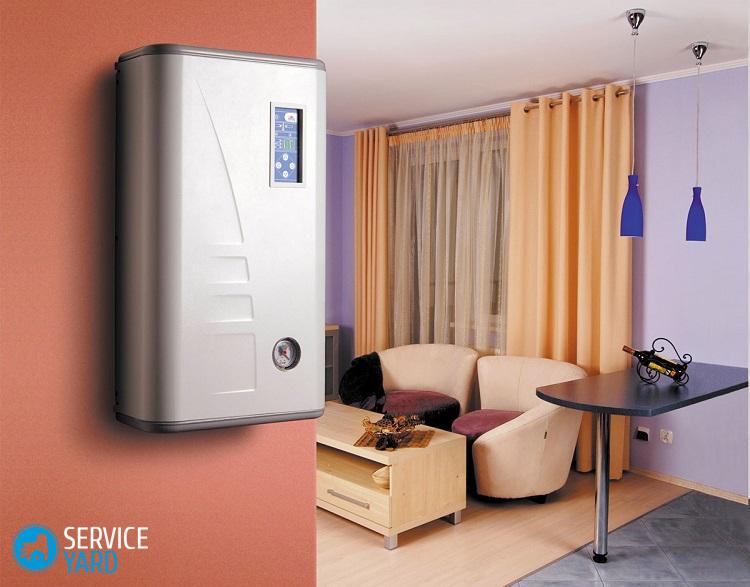
Boilers for heating elements
These are the simplest and cheapest of electrical appliances. A heater is a heating coil located inside a heat-conducting tube and insulated from it by a heat-resistant dielectric. As a rule, the heating elements are made removable, therefore, it is possible to replace a burned out heating element without problems.
If you fill the heating system with antifreeze, it can be operated in the country and in the winter, even if you come there quite rarely. Air in a cooled room warms up quickly enough.
Important! If you do not use special softeners, but simply use well or tap water, the heating element is covered with a layer of insoluble salts. The same precipitate is deposited in heating appliances. The heat transfer efficiency is significantly reduced.
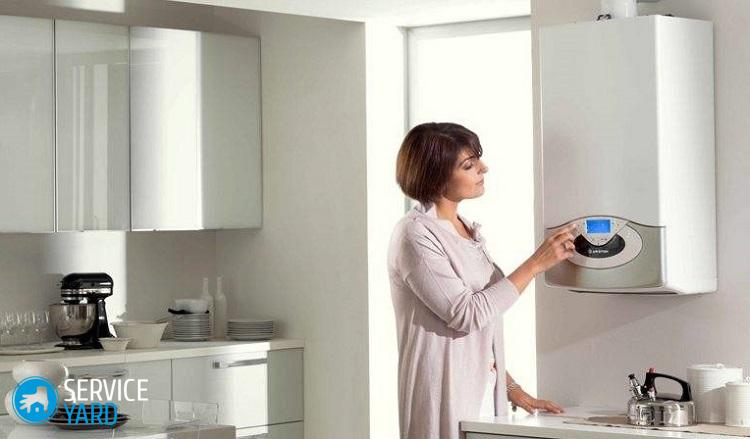
Induction models
The main detail of such a device is an induction coil operating on the principle of a transformer:
- The primary winding is connected to the network (380 or 220 V), the frequency is 50 Hz.
- The secondary winding is made in the form of a pipeline that passes an alternating magnetic field.
The pipeline is equipped with a steel structure of many tubes. Water flows through these tubes. Water heating occurs due to eddy currents.
Important! The main advantage of induction devices is that scale does not form on the walls of the device, and the heat transfer process does not suffer.
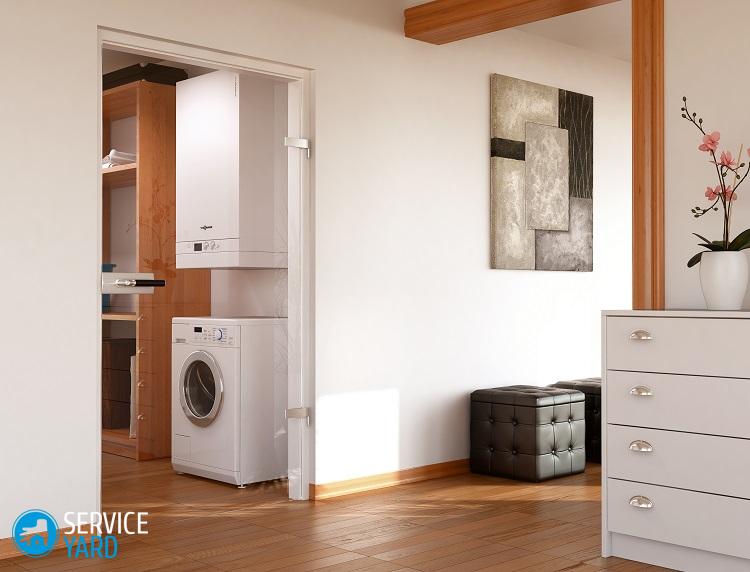
Electrode
These are flowing boilers, also known as ionic ones. When an electric current passes through water, the process of ionization of molecules occurs. In this case, the movement of ions to the electrodes occurs, depending on the “sign” of the charge. Since the current is alternating, the polarity of the electrodes changes at a frequency of 50 Hz. The “throwing" of ions between the electrodes provokes the release of heat. Hence the heating of the water.
Important! Normal tap water is not suitable for use in electrode boilers. It is necessary that the solution used has good electrical conductivity and is well ionized.
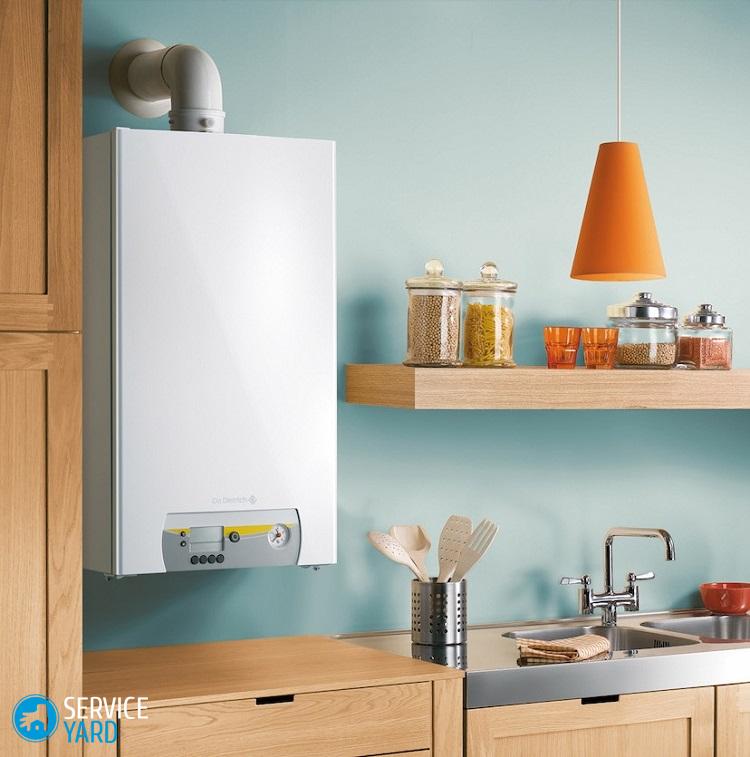
Power calculation principle
Before you pick up an electric boiler for heating your home, be sure to check how well it is insulated. The principle of testing is as follows. Every day in winter, measure the air temperature near the floor and ceiling, with the doors closed.
Important! It is normal if the difference in the measurements obtained is from 2 to 4 degrees. If the difference is greater, check the condition of the seals on the windows and front doors.
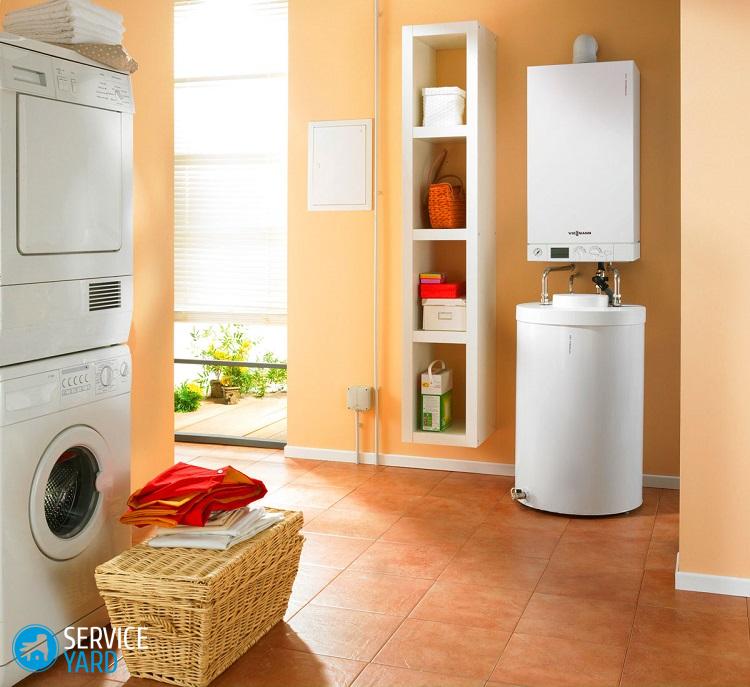
They brought the seals in order, but the temperature difference remains significant? Then you have to do insulation of floors, walls and ceilings. If the insulation is of good quality, then you can choose an electric boiler for heating the house from the calculation of 80-100 watts per one "square" area. We must also take into account the climatic features of the region.
Important! When using the accumulation of heat and hot water, you can slightly reduce the calculated value of power.
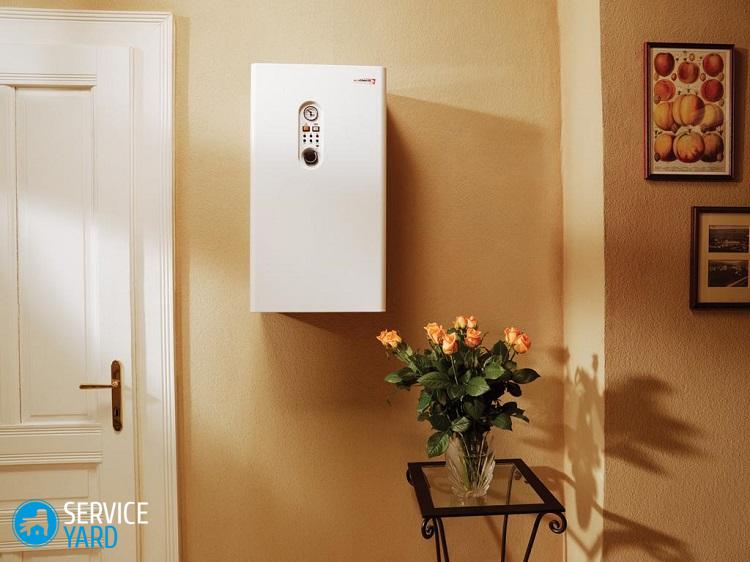
Review of the best models
The rating includes boilers - the best sellers of 2017.
RusNIT 208M
Lightweight and compact model from Russia. It can be used as the main or additional heating device for cottages, residential buildings or auxiliary premises:
- A stainless steel heater is used as a heating element.
- The boiler operates on a voltage of 220 or 380 V.
- The room can be maintained at a temperature of 5-30 degrees.
- As coolants, you can use water or antifreeze.
- The boiler is made with splash protection, so you can install it in the bathroom.
Benefits:
- Comparative cheapness.
- The ability to quickly connect a circulation pump.
- Warranty period - 2 years.
- The ability to control the temperature of the coolant within 35-85 degrees.
Minuses:
- Not automated power selection.
- Sophisticated network connectivity.
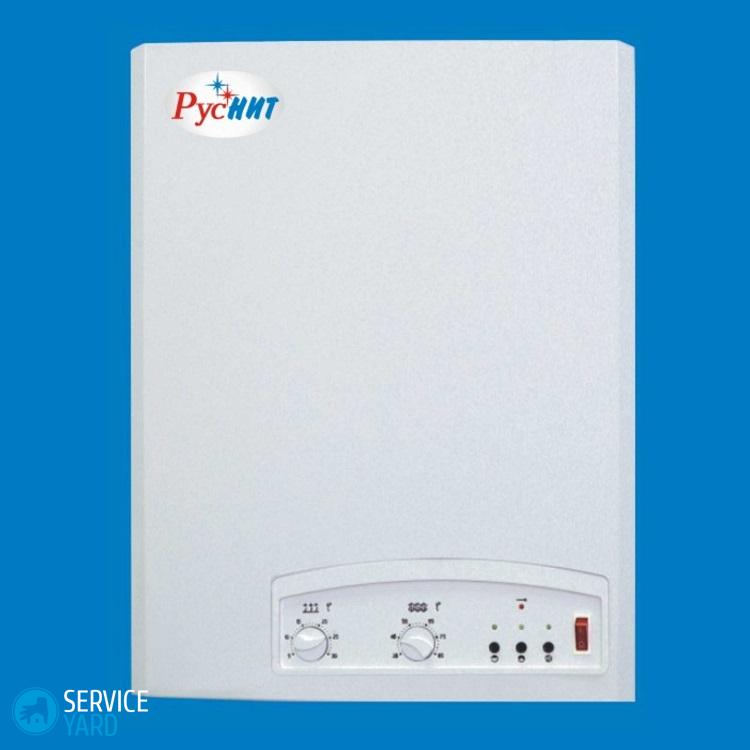
WAN Warmos-IV-5
Inexpensive, but functional and safe device:
- It features a modern design. There is a display to display settings and trouble codes.
- The boiler has compact dimensions, it is mounted quite simply.
- Power is small, but it is quite enough for rooms up to 51 m².
- The temperature range of the coolant is from 5 to 85 degrees.
- The boiler is compatible with the “warm floor” system.
- There is a mode of “anti-freezing”, which allows you to use it in the country.
- The device is very economical, has an excellent indicator of efficiency - 99%.
- The operating voltage range is from 160 to 260 V.
- The heating element is a heater made of high quality stainless steel Backer.
Benefits:
- The small sizes.
- Stylish design.
- Possibility of using water or antifreeze as a heat carrier.
- 3 degrees of power adjustment.
- The ability to control the temperature with a gradation of 1 degree.
Disadvantages:
- The kit does not have a circulation pump.
- Small power.
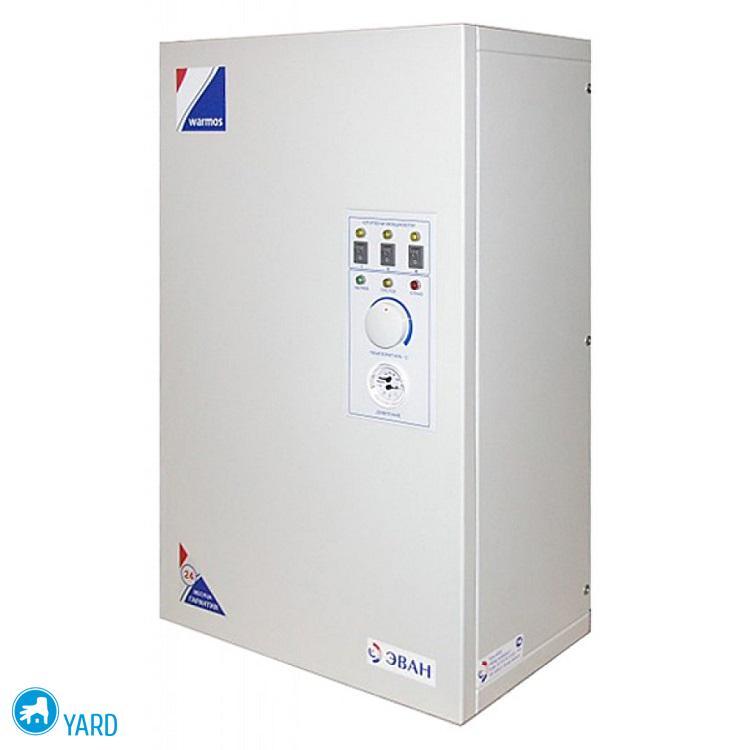
EVAN EPO 4
Floor model. Unlike many floor constructions, EVAN EPO 4 is notable for its compact size and affordable price. This is one of the reasons why you should choose such an electric boiler for heating a private house.
Important! It is possible to smoothly change the temperature of the coolant within 30-85 degrees. There is a function to automatically turn off the boiler when overheating. If the coolant temperature exceeds 92 degrees, the device turns off automatically.
Benefits:
- Low cost.
- Work from a 1-phase network.
- High (99%) efficiency.
Minuses:
- Low power.
- There is no heat shield.

Protherm Slope 24 KR 13
This Czech model is considered one of the best:
- The wall-mounted appliance is convenient, safe and functional.
- It is possible to connect a boiler for hot water, for the “warm floor” system.
- The boiler is equipped with a copper heater.
- Included with the device is a circulation pump.
- The temperature of the coolant is from 35 to 85 degrees.
- The device runs on a 3-phase 380 V network.
Benefits:
- High value of efficiency - 99.5%.
- Warranty period - 2 years.
- Assembly of European quality.
- Soft start.
Minuses:
- Noise at work.
- The need to purchase a voltage stabilizer.
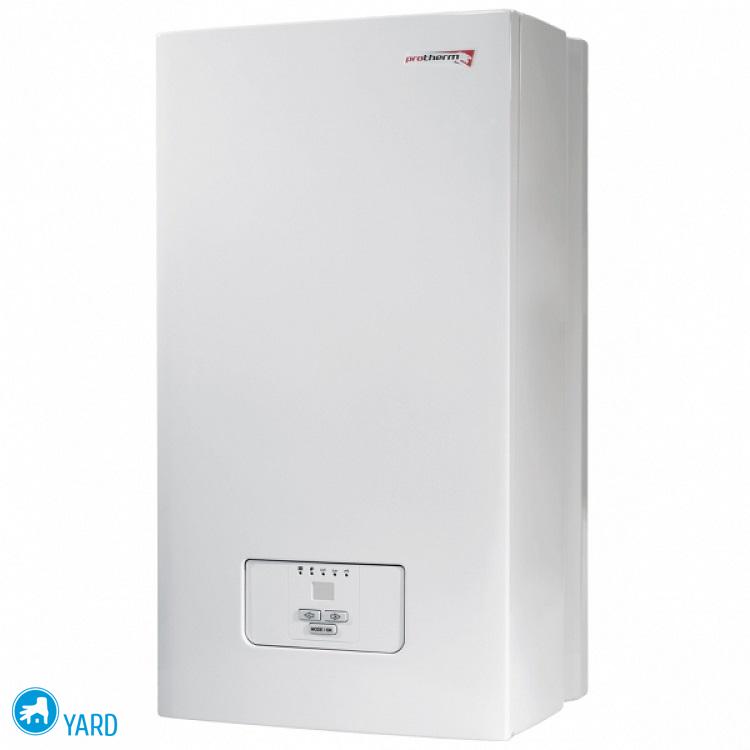
Which is better to choose an electric boiler for heating a private house or cottage?
The choice of an electric device is influenced by such a factor as the degree of autonomy:
- For a large house, an induction device with the appropriate power will be an excellent choice.
- For a small house, an electric boiler (ionic or TEN) is preferably used as a backup to a gas or solid fuel. It can be used as an additional source of heat in cold weather or in case of interruptions in gas supply.
to contents ↑Important! If your area often experiences a power outage, using electric boilers can be a problem. This problem can be solved using a voltage stabilizer.
Stock footage
In this article, we have presented you with the main considerations regarding how to choose an electric boiler for heating a private house so that there are no problems with its operation. We hope that you have successfully completed this task, and now your house is equipped with a high-quality heating system, underfloor heating, hot water supply, which operate smoothly all year round as you need.





